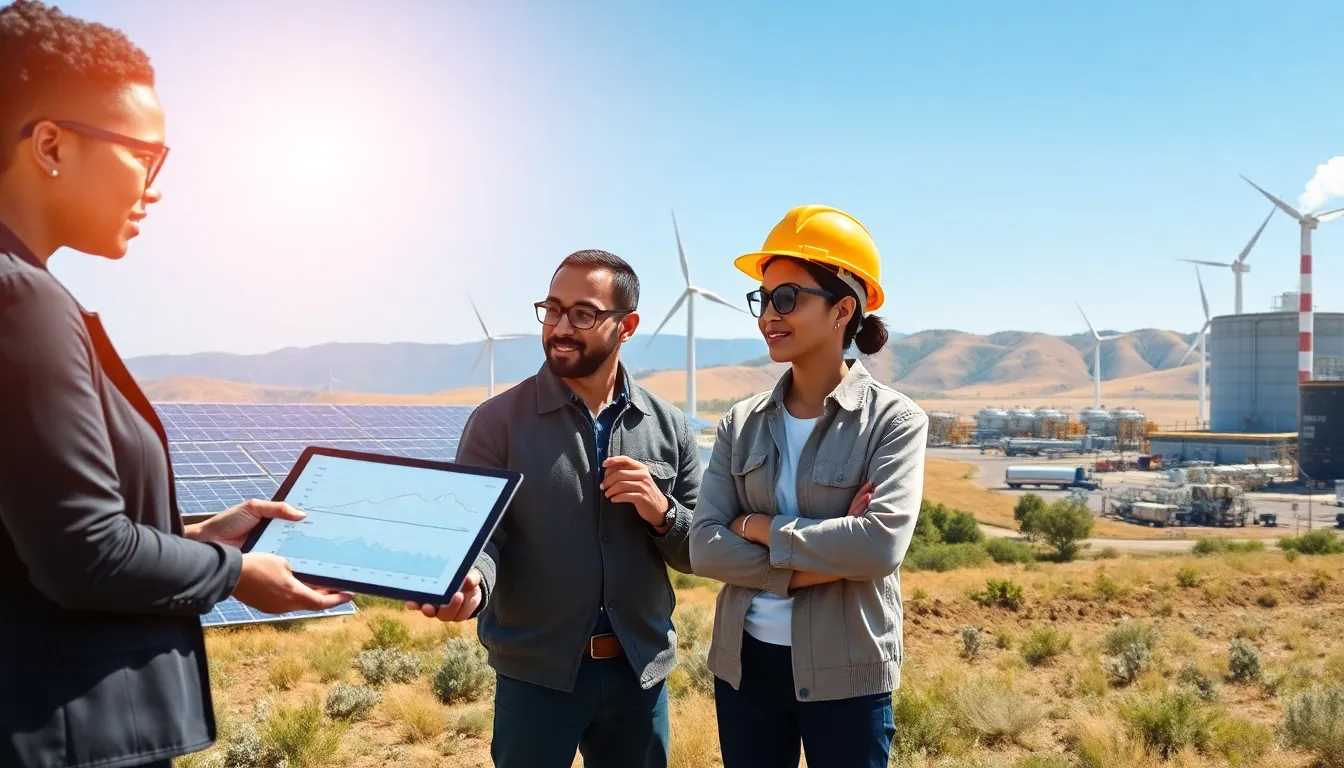In an era where energy demands are constantly on the rise, the phrase “lots of power” takes on profound significance. This term not only encapsulates the sheer force of energy production but also encompasses its implications for technology, industry, and daily life. By exploring the concept of “lots of power,” one can appreciate its historical context, recognize the benefits it brings, and confront the challenges and limitations it poses. Besides, understanding the real-world applications and future trends of power generation can help individuals and industries alike harness its potential responsibly and effectively.
Table of Contents
ToggleWhat Is Lots Of Power?

“Lots of power” refers to an excess of energy capacity or output that extends beyond typical requirements. In practical terms, it can relate to various forms of energy generation, be it electrical, solar, wind, or fossil fuels, where the ability to produce a significant amount of energy has various implications for technological advancement and societal development.
The concept involves more than just quantity: it also addresses efficiency and sustainability. The current energy landscape increasingly emphasizes the need for not only abundant power but also a safe and sustainable approach to energy generation and consumption.
Historical Context And Development
The journey towards achieving lots of power began in the Industrial Revolution when societies shifted from agrarian economies to industrial powerhouses. The advent of steam engines and later electrification dramatically transformed energy production and consumption. As factories sprang up, the demand for energy soared, leading to mass production methods that required significant power input.
In the 20th century, the rise of renewable energy sources began to reshape the landscape once again. Wind turbines and solar panels emerged as viable alternatives to coal and gas, prompting a revolution in energy generation. As concerns about climate change grew, the conversation surrounding lots of power increasingly included discussions about environmental stewardship and sustainability.
The Benefits Of Lots Of Power
The advantages of having lots of power are far-reaching. First and foremost, it ensures reliability in energy supply, which is crucial for industries ranging from manufacturing to technology. A steady power supply enables economies to flourish, jobs to be created, and innovations to thrive.
Besides, abundant power allows for advancements in technology. Innovations such as artificial intelligence, electric vehicles, and smart homes require substantial energy. With lots of power at their disposal, industries can create more efficient systems, leading to better resource management and lower costs.
Also, the availability of a significant energy capacity can help the integration of renewable energy sources. It allows for energy storage solutions that ensure stability in supply, especially when demand fluctuates. In essence, lots of power can be a catalyst for progress across various sectors.
Challenges And Limitations
Even though the benefits, the quest for lots of power is not without its challenges. One major concern centers around environmental impact and sustainability. High energy demand often leads to increased greenhouse gas emissions, especially when relying on fossil fuels for generation.
Also, the infrastructure required to support large-scale power generation can be costly and complex. Investments in grid modernization, energy storage technologies, and transmission networks are essential to manage the load efficiently.
Another limitation is the geographical dependency on certain energy sources. For instance, nations heavily reliant on solar power might struggle during prolonged cloudy seasons, necessitating diversified approaches to ensure constant energy availability.
Real-World Applications
Real-world applications of lots of power are evident in various domains. For example, in the manufacturing industry, facilities with high power capacities can run multiple production lines simultaneously, boosting productivity. Data centers, which require vast amounts of electricity, rely on lots of power to ensure uninterrupted operations and optimal cooling systems.
In urban environments, smart cities use lots of power to manage infrastructure seamlessly. Automated traffic signals, smart street lighting, and public transportation systems depend on reliable energy to improve efficiency and reduce congestion.
Also, the shift towards electric vehicles highlights the importance of lots of power in supporting charging stations and infrastructure, underscoring a transition towards cleaner transportation.
Future Trends And Innovations
Looking ahead, the future of lots of power is set to be shaped by innovative technologies. Advances in battery storage systems are crucial for integrating renewable sources effectively, permitting excess energy generated during peak production to be stored and used later. Also, grid innovations such as smart grids, which use data analytics, promise more efficient energy distribution.
Besides, research into fusion energy holds the potential for providing virtually limitless energy, fundamentally changing how society views and utilizes power. The emphasis on sustainability is likely to drive innovation in technologies that harness natural resources more effectively, making lots of power not only achievable but also environmentally responsible.
Conclusion
Summarizing, understanding the implications of lots of power goes beyond simply recognizing its capacity. While the importance of abundant energy is clear, one must also navigate the associated challenges and limitations. The historical context has provided the foundation for today’s energy landscape, while the benefits underscore the potential for advancement across various sectors. As society moves towards a more sustainable future, innovations will continue to redefine what it means to harness lots of power effectively and responsibly.








